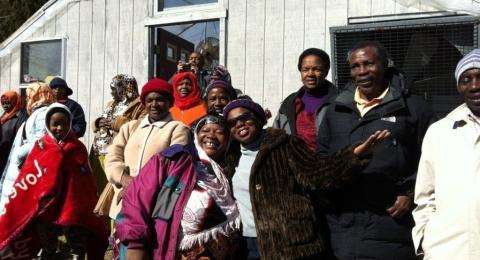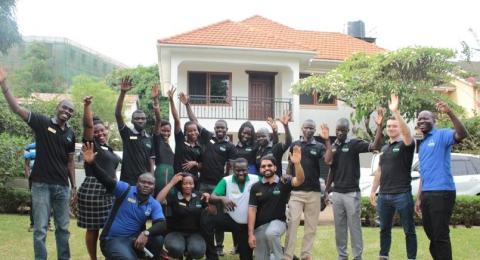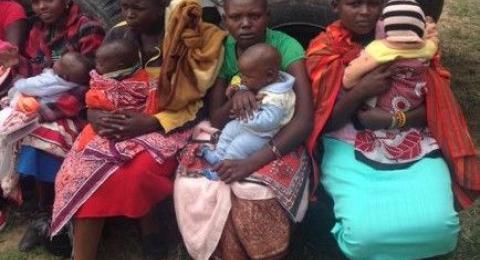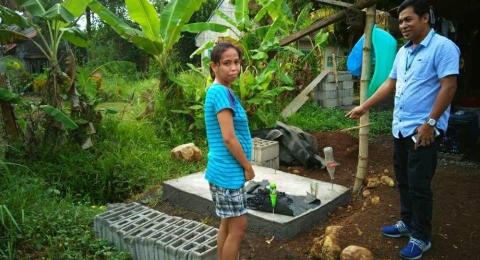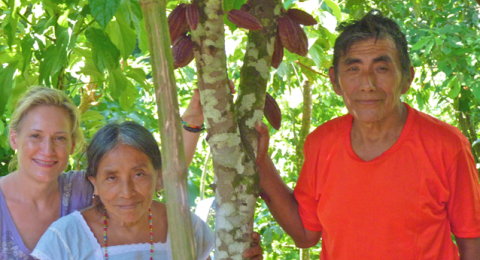Students in the Master in Community Development program complete a four-term Capstone project as the culmination of their graduate work. The Capstone is designed to provide them with an opportunity to directly apply theories learned in the classroom to a major applied project within their communities. Students take a series of project courses over four semesters in design, implementation, management and monitoring/evaluation while carrying out their community project. This provides an ideal learning experience for our students while also benefiting a community.
Carsey School of Public Policy
-
Academic Programs
Show Academic Programs submenu
-
Masters Programs
Show Masters Programs submenu
- Master in Community Development MA (Online) Show Master in Community Development MA (Online) submenu
- Master of Global Conflict and Human Security (Online)
- Master of Public Administration MPA (Online) Show Master of Public Administration MPA (Online) submenu
-
Master in Public Policy MPP
Show Master in Public Policy MPP submenu
- Carsey Stories: It's All Worth It!
- Carsey Stories: Communicating Policy
- Carsey Stories: Say "Yes!" to Opportunity
- Carsey Stories: Sustainable Solutions
- Carsey Stories: Just Do It!
- Carsey Stories: Representing
- Carsey Stories: Intern Working Against Internment in Washington, D.C.
- Carsey Stories: Dreams Fulfilled
- Master in Public Policy and Juris Doctor Dual Degree MPP/JD
- Executive Masters
- Accelerated Masters
- Continuing Education
- Grad Certificate Programs
- Changemaker Collaborative
-
Student Experience
Show Student Experience submenu
- Carsey Fellowships Show Carsey Fellowships submenu
- Discover the Carsey Community: Students, Alumni & Faculty Show Discover the Carsey Community: Students, Alumni & Faculty submenu
- Washington, D.C., Colloquium Show Washington, D.C., Colloquium submenu
- Master in Community Development Capstone Projects
- Master of Public Administration Capstone Projects
- Recorded Information Sessions
- Upcoming Information Sessions
-
Masters Programs
Show Masters Programs submenu
-
Admissions
Show Admissions submenu
- Application Checklist: How to Apply
-
Paying For School
Show Paying For School submenu
-
Partner Scholarships
Show Partner Scholarships submenu
- The City Year Scholarship
- Community Opportunity Alliance Scholarship
- Coverdell Fellow Scholarship
- First Responders Scholarship
- Grow America Scholarship
- Inclusiv Scholarship
- LISC Employee Scholarship
- NALCAB Scholarship
- NeighborWorks Scholarship
- New Hampshire Center for Nonprofits Scholarship
- New Hampshire Municipal Association (NHMA) Scholarship
- North American Family Institute (NAFI) Scholarship
- OFN Employee Scholarship
- Segal AmeriCorps Match Scholarship
- Semester in the City Scholarship
- The Washington Center Scholarship
-
Partner Scholarships
Show Partner Scholarships submenu
- Schedule a Campus Visit
- Research & Centers Show Research & Centers submenu
- News & Events Show News & Events submenu
- About Show About submenu
-
Academics
Show Academics submenu
- Explore Degree Programs
- Areas of Study Show Areas of Study submenu
-
Colleges & Schools
Show Colleges & Schools submenu
- Carsey School of Public Policy
- College of Engineering and Physical Sciences
- College of Health and Human Services
- Colege of Liberal Arts
- College of Life Sciences and Agriculture Show College of Life Sciences and Agriculture submenu
- College of Professional Studies
- Franklin Pierce School of Law
- School of Marine Science and Ocean Engineering
- Online
- Peter T. Paul College of Business and Economics
- Experiential Learning Show Experiential Learning submenu
- Honors Opportunities
- Outcomes & Value
- Admissions & Aid Show Admissions & Aid submenu
- Life at UNH Show Life at UNH submenu
- Research Show Research submenu
- About UNH Show About UNH submenu
